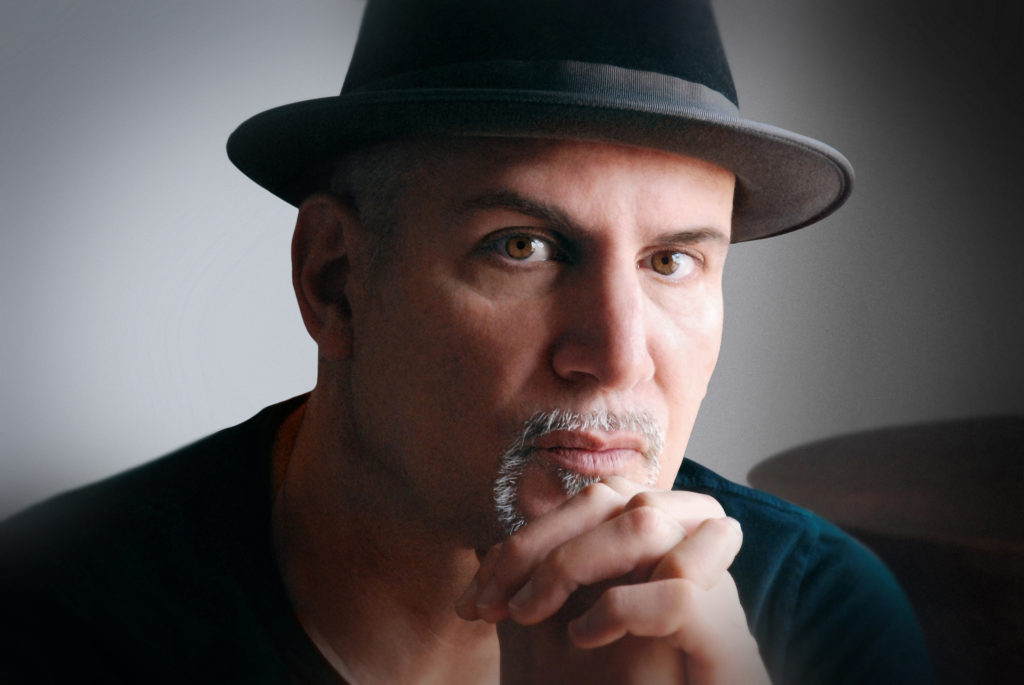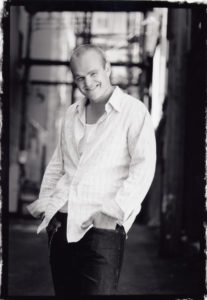 Filmmaking has come such a long way since the days of the original “Planet of the Apes.” In 1968, the primate costumes that populated the film were more than enough to captivate an entire generation of science fiction fans, but compare them against the range of performance and realism of the current cast from the blockbuster “War for the Planet of the Apes” and you instantly understand why a swirl of Oscar buzz has already begun for the finale of the trilogy.
Filmmaking has come such a long way since the days of the original “Planet of the Apes.” In 1968, the primate costumes that populated the film were more than enough to captivate an entire generation of science fiction fans, but compare them against the range of performance and realism of the current cast from the blockbuster “War for the Planet of the Apes” and you instantly understand why a swirl of Oscar buzz has already begun for the finale of the trilogy.
We recently sat down with Michael Adamthwaite who plays Luca, Caesar’s gorilla lieutenant in the film, to discuss how playing a primate is not about playing it human, why backstory was so important, and how he had to take everything off in order to inhabit the mind of an ape.
TrunkSpace: How important was it that the actors involved in the film take a very human approach to the performance aspects of the primates and has that helped lead to the franchise’s overall success?
Adamthwaite: You know, I would definitely say yes. The only sticking point where I would change is that it’s not about apes or primates being human. Quite the contrary, I would like to think that the evolution of the simian virus itself, it didn’t make apes more human… it just gave them a new level of consciousness and a new level of awareness. I mean, we’re all sentient beings with or without the awareness of ourselves in biology. Apes and other animals, they’re not guests the way we are. They’re total in their biology. They’re total in their bodies. And they have an awareness that we don’t really have.
There’s a squirrel, sitting on a limb, thinking, “Oh, I wish my tail was puffier.” Well guess what, he gets snatched up by the eagle. Distraction… you’re dead.
They’re very, very present.
But yeah, no, it’s not about apes being human. This is about them, after so much time, discovering that they’re so much more. It’s a weird and wonderful world.
TrunkSpace: So with that in mind, from a performance standpoint, do you still look to discover Luca’s backstory for yourself?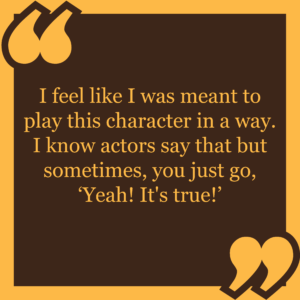
Adamthwaite: Oh, absolutely. I mean, think about his beginning and that was really where I had to start. Obviously he was established in “Dawn,” the second film of the trilogy. All the apes were victims of this circumstance where they, through no fault of their own, were at the same installation with Caesar when he purposefully released the virus and brought intelligence to that one group. But through the simian virus passing through humans, other groups of apes became infected and discovered through no fault of consequence, or even awareness of their own, that they were getting smarter.
So these other groups were popping up and Luca was one of the apes who lead the real gorilla push in “Dawn” for the security and that real battle at the bridge. So it was connecting from the first moment, realizing who he is and what his role is in the community. Everybody has a job. You have a purpose. You have something to do every day in an ape community. So, the apes have their own, I guess, hierarchy. And of course, we know from the history of the franchise that the gorillas, given their size, are kind of like the heavy artillery. They’re the muscle, so there’s always been a militant component to their role in the community.
And Luca is no different. He’s the trusted lieutenant. He’s loyal. He’s serving not only the first family, Caesar and his wife and children, but he’s also in charge of the whole guard for the entire community where they live in this beautiful hidden fortress. So he very much has a clean and defined purpose.
And that for me was really easy to gravitate towards because from very early in my life to about my late teens I was involved with the PPCLI (Princess Patricia’s Canadian Light Infantry) as a cadet. I have a long record of cadet service so I knew instantly how to be militant, how to be big, how to be intimidating, and how to be loyal. That was well-ingrained in me from very early stages. I feel like I was meant to play this character in a way. I know actors say that but sometimes, you just go, “Yeah! It’s true!”
TrunkSpace: And in way it is true because you audition for the character and put yourself in the best position to be seen as him.
Adamthwaite: Yeah, I think so many times as an actor you just have to cross your fingers. But then you start to do the math and you think, “How many people must have read for this?” Or, “How many could have read for this?” And then you eventually just start to say, very humbly, “Well, I’d like to now just step into that place where I know that I was made for this role and that this role was made for me.”
It’s a pretty humbling realization.
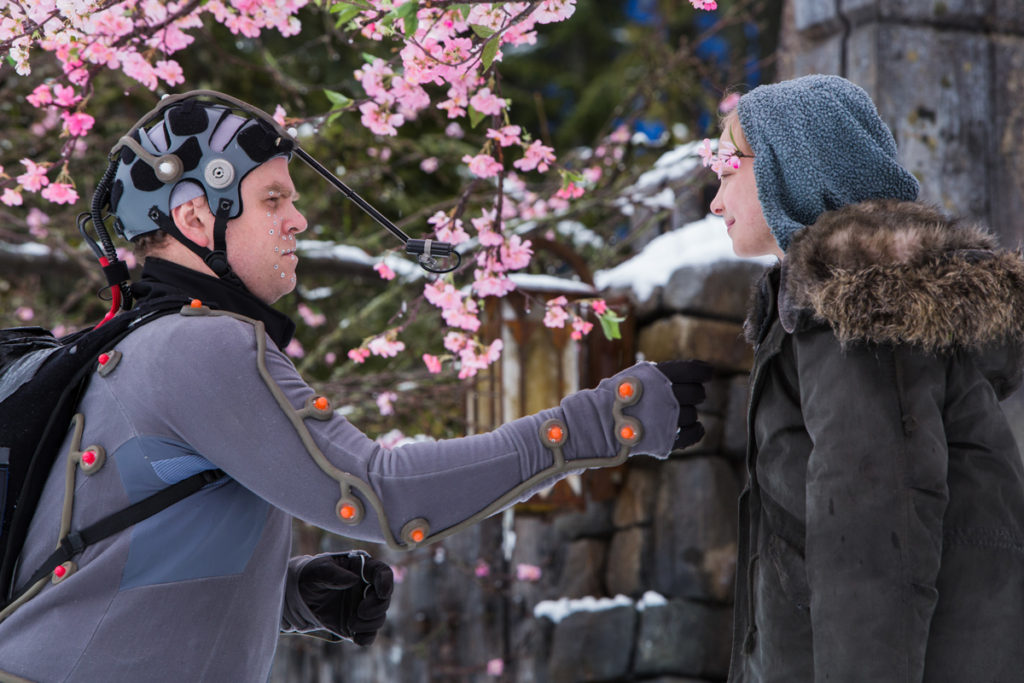

TrunkSpace: In terms of the process itself, it’s so complicated to pull off and yet it’s still so grounded in the roots of acting. Did that process force you to look at the idea of performance differently?
Adamthwaite: Oh, absolutely. And I mean, Andy Serkis has said it from the very moment that he started getting the attention that he so richly deserves. It’s not any different than acting. People say, “Should there be an Oscars category for motion capture?” And the answer is, no. They’re actors. We’re actors. We’re performers. The technology is brilliant… it’s mind-blowing. Every layer of code, and shade, and hair, and skin, and moisture… it’s absolutely breath-taking. My brain was fighting itself the whole time seeing the movie. This is real. This is not a visual. This is not a trick. These are real. And I myself, just as a fan, as an audience member, was able top go to a completely different place. But working in it is no different than being on stage.
There’s been an interesting request for this on Twitter that I’ve noticed in a lot of feeds where people would love to see a cut of the film without the ape renderings. “What are they really gonna look like?” And the answer is, guys, it’s gonna look exactly the same except it’ll be as if the actors didn’t have their makeup on. They didn’t have their wardrobe.
And they dress us. There’s a department and they put our makeup on. It just happens to be, they use computers. That’s it. It’s very much like any other job I’ve ever had, but the intensity level is so off the charts. Andy has, again, set the bar so high. It’s been a huge whirlwind rush to be a part of this whole process.
TrunkSpace: You mentioned wardrobe. Actors often say that they were able to inhabit their character’s headspace once they put on X, Y, or Z. With not having a physical wardrobe to meld with, did the motion capture stuff sort of become your wardrobe?
Adamthwaite: In a way, we were very much naked from the beginning. And I don’t use that in a sort of comedic way and I’m not trying to taboo. Terry Notary’s role, not only as Rocket but as the movement director/coordinator, was to put us all through ape school and his job was very simple. “Bring nothing. Come as you are. You are not trying to become an ape. You’re trying to become a sentient being in a body.”
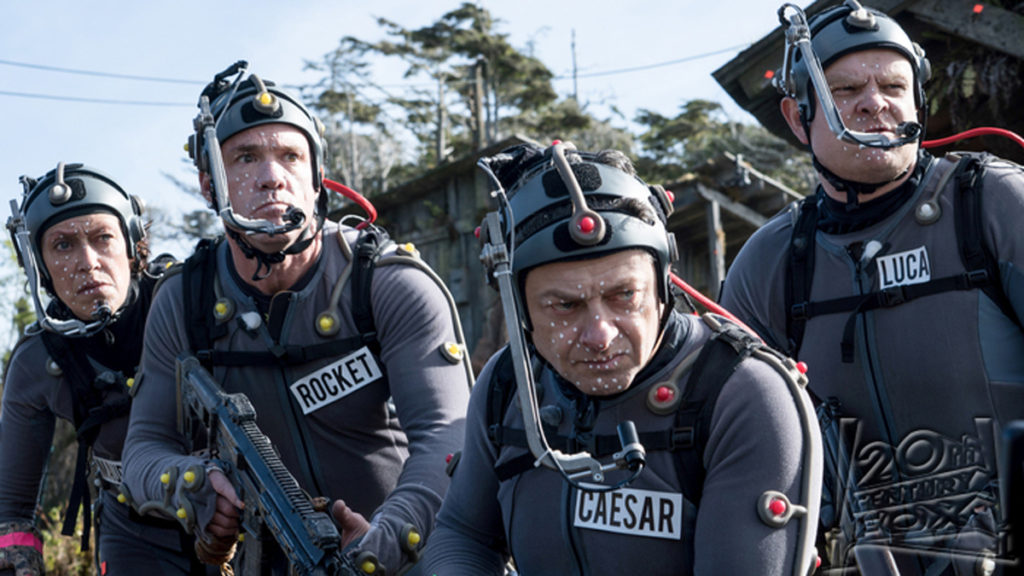
It might sound crude, but we’re all just made of meat. We’re all just organic engines, whether you have a consciousness that’s evolved or not. So really, for Terry, it was all about stripping all of us down. Because we wear masks, we wear walls. We put things up, we hold people at bay. We have our motivations. We have our ego. All those things that we have to protect ourselves because society has become what it is. We don’t really need that as apes. Our family is our family. This is a group that’s evolved from grooming each other and sleeping together. They have no clothes. They have no possessions. All they have is each other and that requires that nakedness. It requires that vulnerability. It requires that complete and total commitment.
We spent hours in the woods on our arm extensions running and jumping, climbing things, sitting, and just being in nature listening to the creek. And it was just… it was amazing to connect. There wasn’t really putting anything on, it was taking everything off.
“War for the Planet of the Apes” is in theaters now.


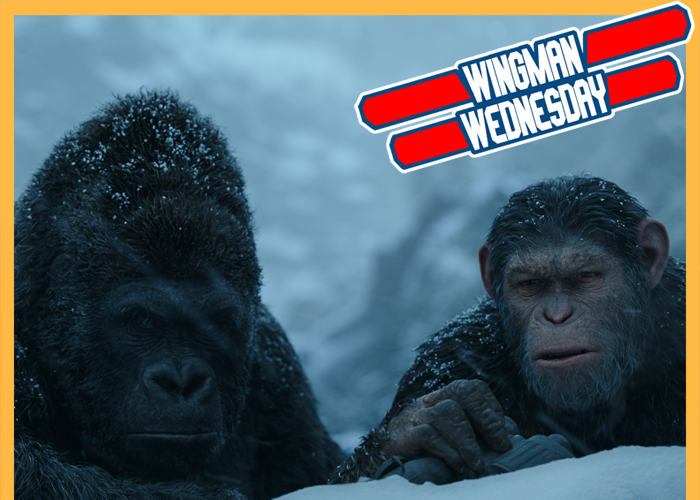


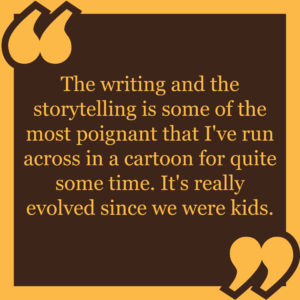

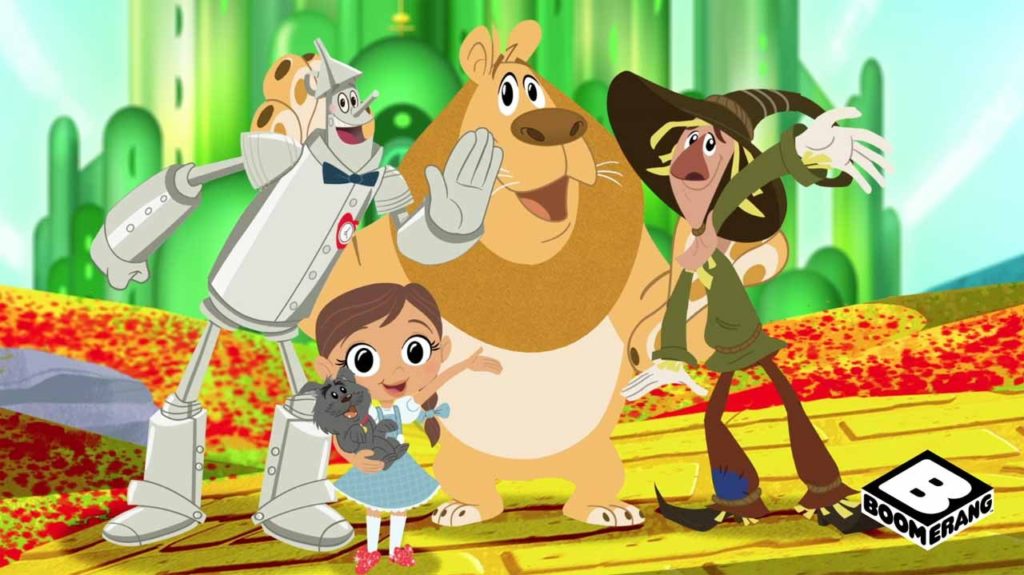
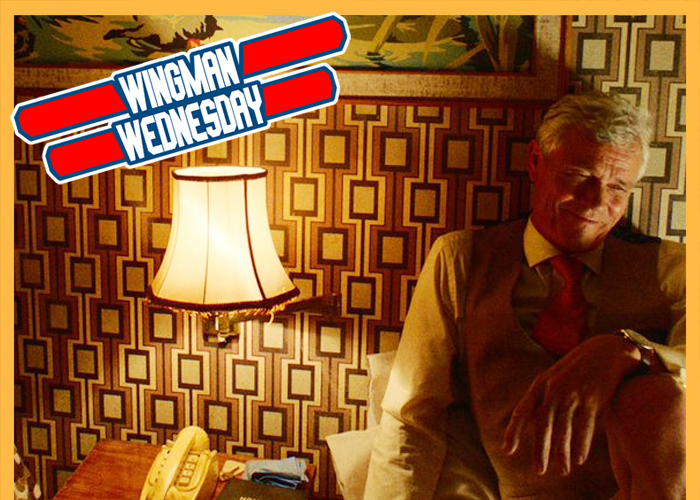
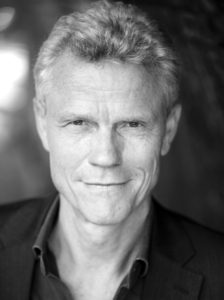 In the world that “Blood Drive” inhabits, Andrew Hall’s character, The Gentleman, is about as chivalrous and honorable as you will find, which is to say, he’s not very. When not feeding innocent people into his car, he is toying with the fragile emotions of his racing companion The Scholar, played brilliantly by Darren Kent. And while on the surface The Gentleman seems pretty cut and dry in his self-centered importance, there is a hidden layer to the sophisticated egomaniac that Hall teases within the shadows of the character’s psyche that plays masterfully like a comic book villain’s secret identity performing on Broadway.
In the world that “Blood Drive” inhabits, Andrew Hall’s character, The Gentleman, is about as chivalrous and honorable as you will find, which is to say, he’s not very. When not feeding innocent people into his car, he is toying with the fragile emotions of his racing companion The Scholar, played brilliantly by Darren Kent. And while on the surface The Gentleman seems pretty cut and dry in his self-centered importance, there is a hidden layer to the sophisticated egomaniac that Hall teases within the shadows of the character’s psyche that plays masterfully like a comic book villain’s secret identity performing on Broadway.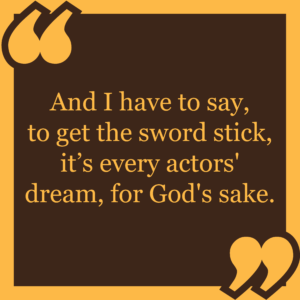 this is ever going to see the light of day?”
this is ever going to see the light of day?”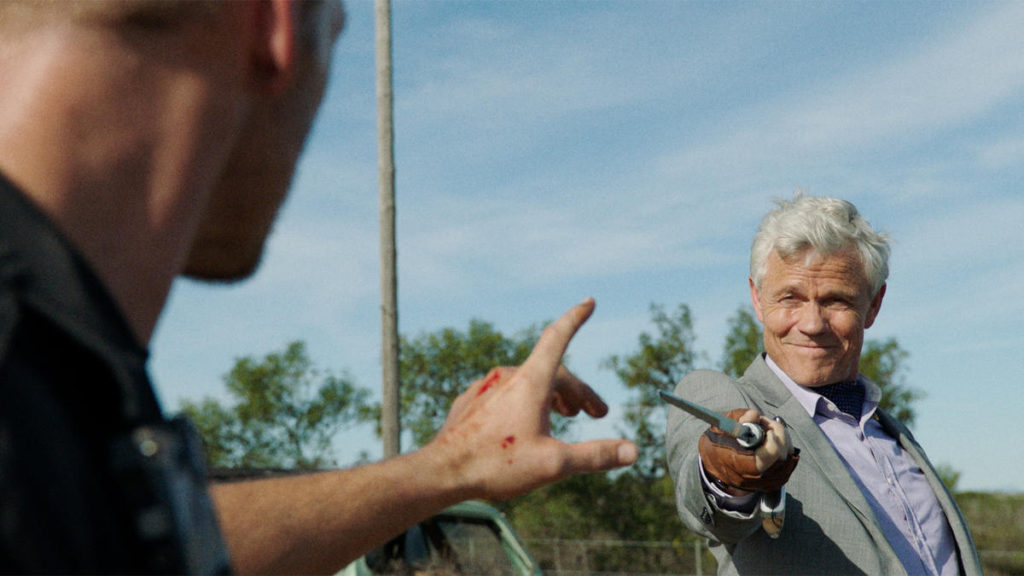
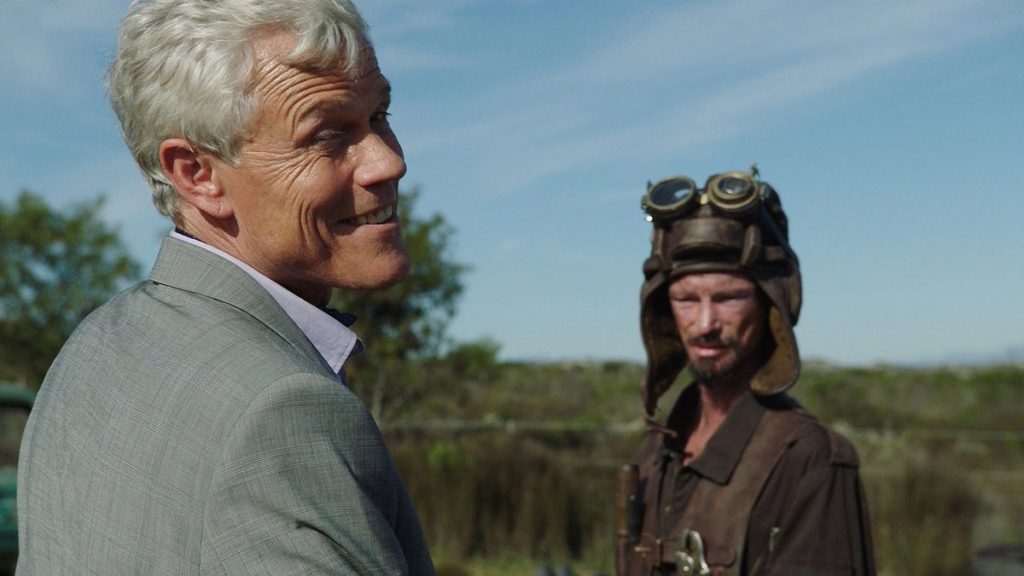


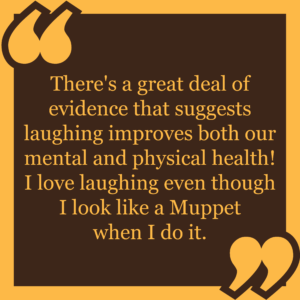 acting when I could, but really I was just trying to keep my head above water. I was barely making enough money to get by. I got a promotion and with it I asked for a raise. I was told that would not be happening. When I initially had the conversation with my boss, I didn’t plan on quitting, but when I was told that I wasn’t going to receive a raise my gut instinct was to utter, “Okay, then I have to put in my two weeks notice.” I went to my car and cried! I had no idea what I was going to do. Then, I realized that I had always wanted to move to New York to pursue acting. A month later, I packed up my car and drove up. I maybe had $1000.00 in my account, no job lined up, but all the passion in the world.
acting when I could, but really I was just trying to keep my head above water. I was barely making enough money to get by. I got a promotion and with it I asked for a raise. I was told that would not be happening. When I initially had the conversation with my boss, I didn’t plan on quitting, but when I was told that I wasn’t going to receive a raise my gut instinct was to utter, “Okay, then I have to put in my two weeks notice.” I went to my car and cried! I had no idea what I was going to do. Then, I realized that I had always wanted to move to New York to pursue acting. A month later, I packed up my car and drove up. I maybe had $1000.00 in my account, no job lined up, but all the passion in the world.
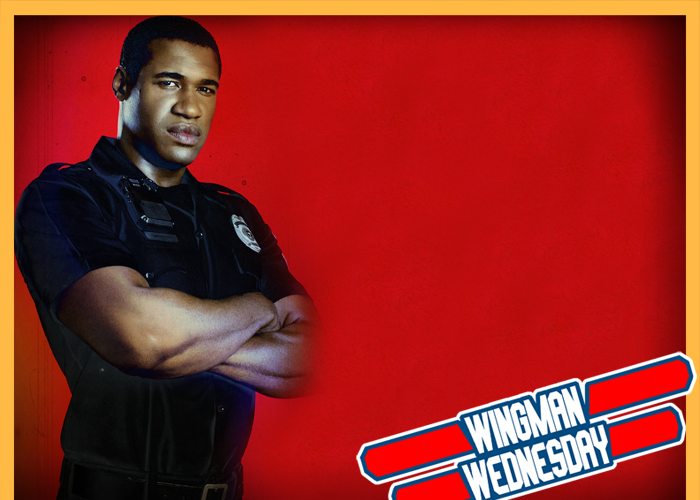
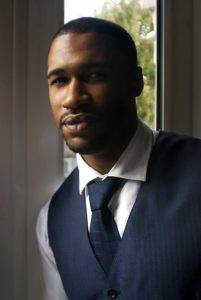
 taking the reigns of the series as a lead in the US when most of your previous work was shot and seen in the UK?
taking the reigns of the series as a lead in the US when most of your previous work was shot and seen in the UK?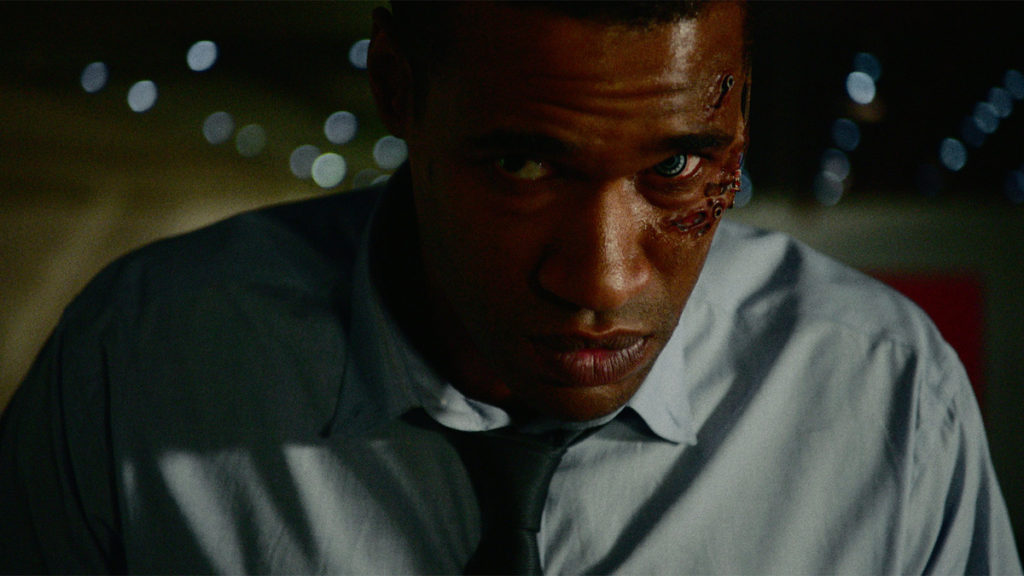
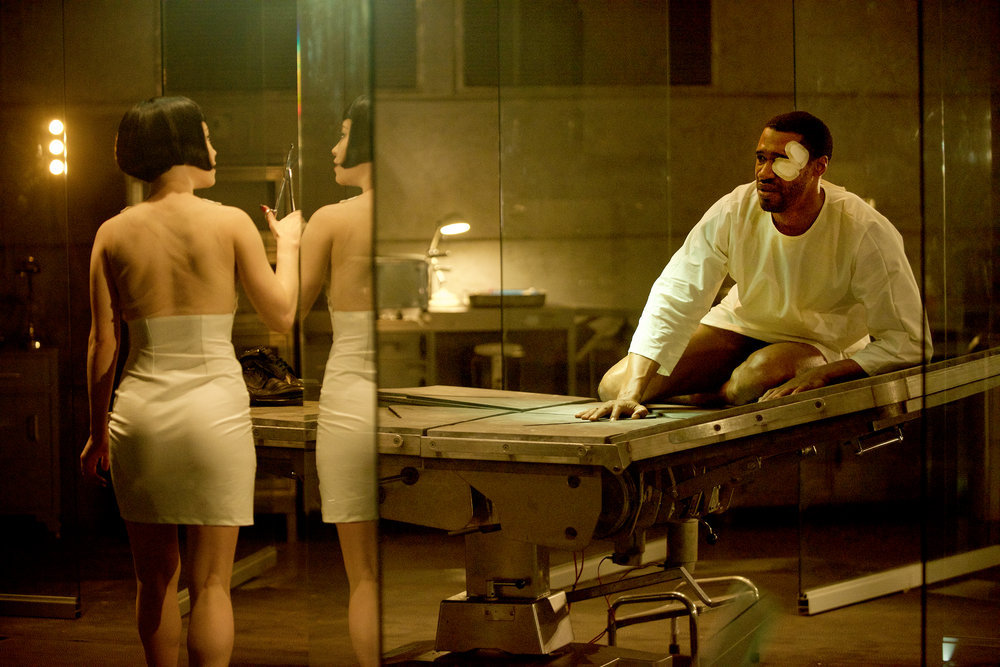
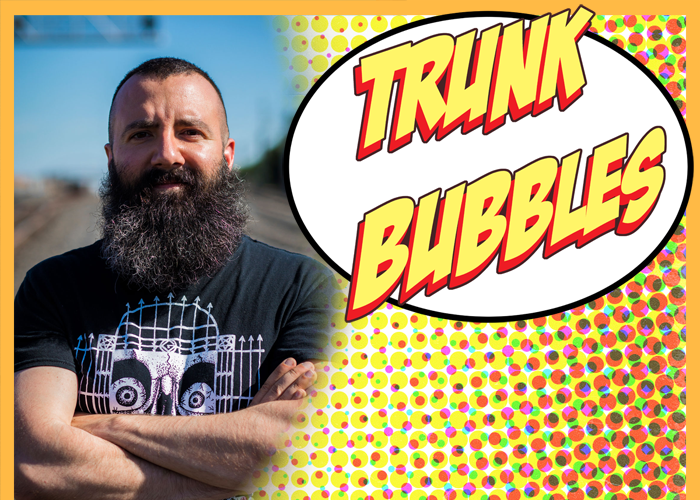
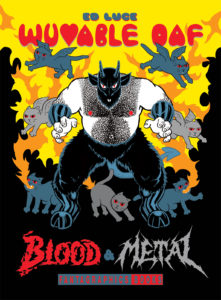 Name: Ed Luce
Name: Ed Luce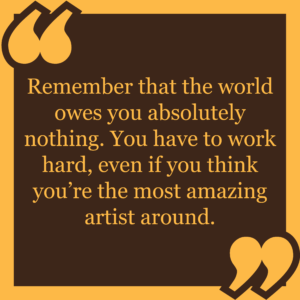 sculptor Erik Erspamer), all spinning out of the main Wuvable Oaf book. This helped demonstrate I had a vision and brand, which definitely attracted the attention of publishers. To this day I think that approach led me to working with Fantagraphics.
sculptor Erik Erspamer), all spinning out of the main Wuvable Oaf book. This helped demonstrate I had a vision and brand, which definitely attracted the attention of publishers. To this day I think that approach led me to working with Fantagraphics. TrunkSpace: Making appearances at conventions: Love it, leave it, or a combination of both?
TrunkSpace: Making appearances at conventions: Love it, leave it, or a combination of both?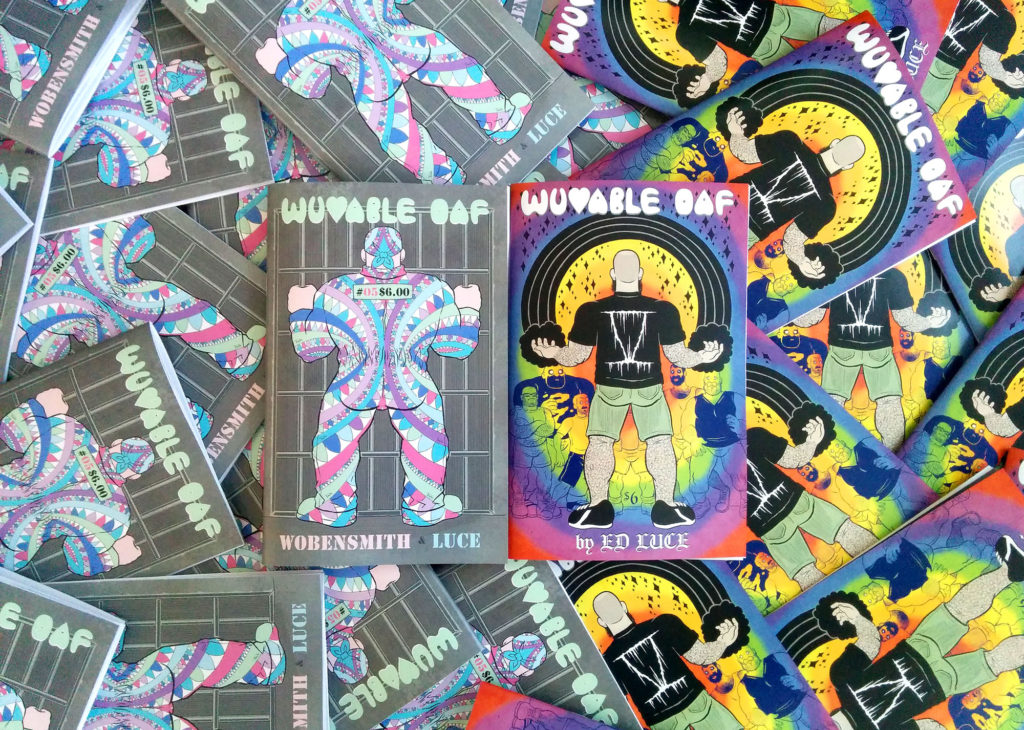
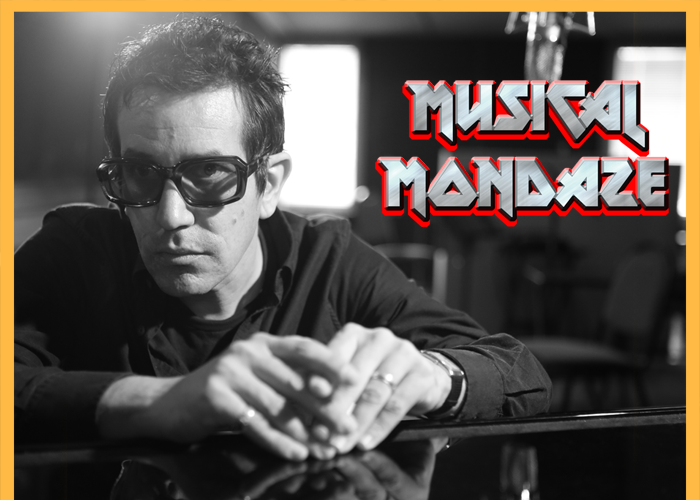

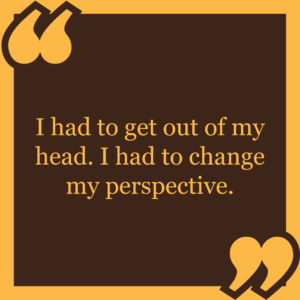 from California to Nashville again (it’s our second time living there), and all kinds of good stuff and all kinds of hard stuff. Selling my house. I was broke. I had tax problems. I had all kinds of psychological problems with a million different things going on, and meanwhile, touring and trying to keep a career.
from California to Nashville again (it’s our second time living there), and all kinds of good stuff and all kinds of hard stuff. Selling my house. I was broke. I had tax problems. I had all kinds of psychological problems with a million different things going on, and meanwhile, touring and trying to keep a career. 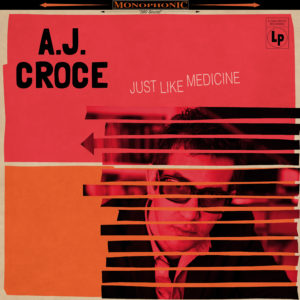 TrunkSpace
TrunkSpace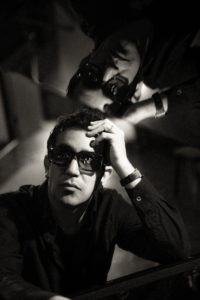
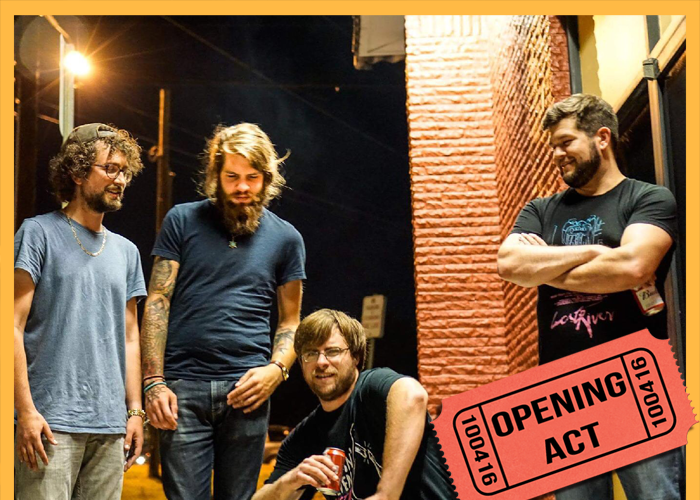
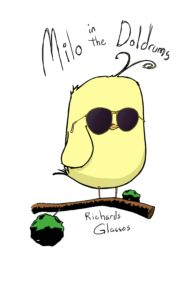 Artist/Band: Milo in the Doldrums
Artist/Band: Milo in the Doldrums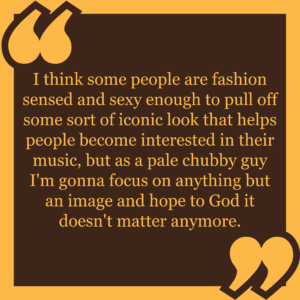 traded that hard work in for social media outreach, which while effective to some degree, also seems kind of fleeting. How important is gigging out and hitting the road to Milo in the Doldrums?
traded that hard work in for social media outreach, which while effective to some degree, also seems kind of fleeting. How important is gigging out and hitting the road to Milo in the Doldrums?

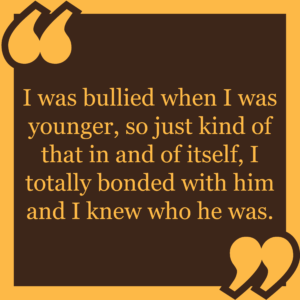 Pete was right away?
Pete was right away?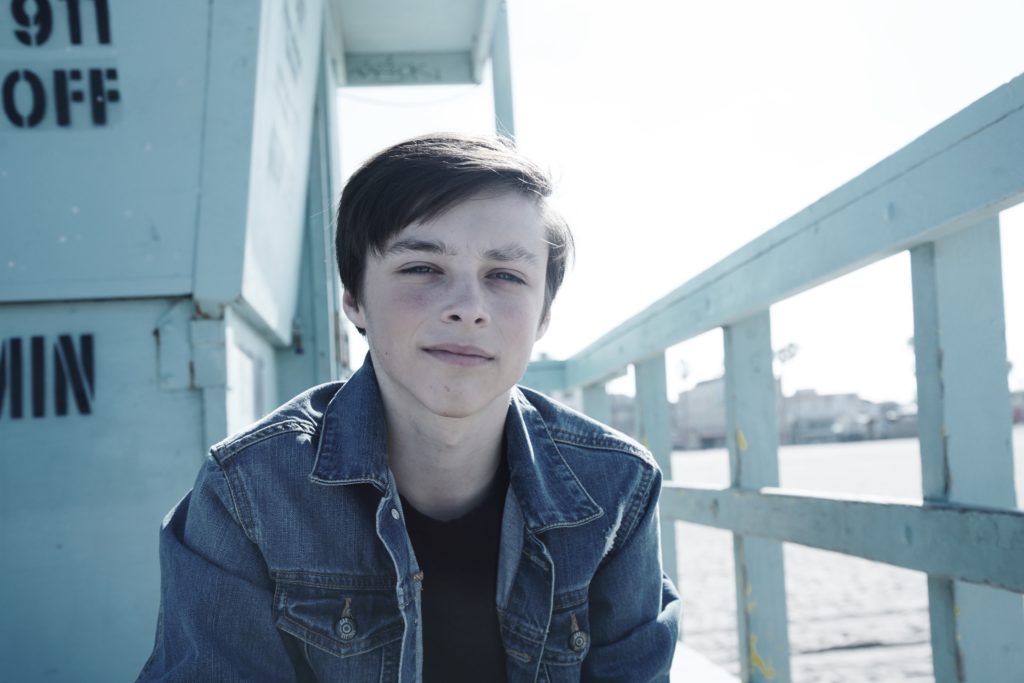
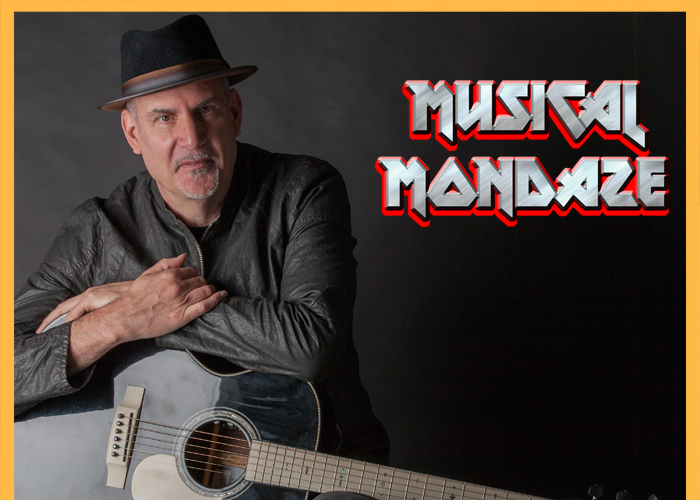
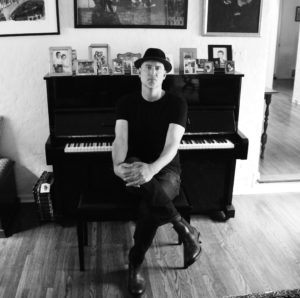 People have been enjoying the music of Peter Himmelman for decades, some without ever having realized it. As a successful composer for Hollywood film and television projects like “Bones” and “Judging Amy,” the Minnesota-native’s work has trickled into our subconscious and has been hummed from our lips, but it is his moving and thought-provoking solo work that stays with you on an emotional level. His latest album “There Is No Calamity” would be a page turner if it were a book, each track representing a chapter in a story that becomes more clear the deeper you dive into the context.
People have been enjoying the music of Peter Himmelman for decades, some without ever having realized it. As a successful composer for Hollywood film and television projects like “Bones” and “Judging Amy,” the Minnesota-native’s work has trickled into our subconscious and has been hummed from our lips, but it is his moving and thought-provoking solo work that stays with you on an emotional level. His latest album “There Is No Calamity” would be a page turner if it were a book, each track representing a chapter in a story that becomes more clear the deeper you dive into the context.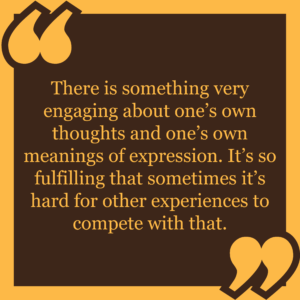 in the creative aspect of those songs, there must be a different level of that memory trigger?
in the creative aspect of those songs, there must be a different level of that memory trigger?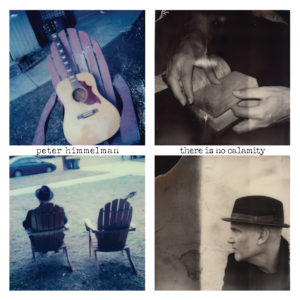 TrunkSpace: You mentioned that the songs are representative of those periods of struggle or joy. Is songwriting almost a bit of a therapy? Is it a therapeutic practice to be able to get those emotions out?
TrunkSpace: You mentioned that the songs are representative of those periods of struggle or joy. Is songwriting almost a bit of a therapy? Is it a therapeutic practice to be able to get those emotions out?